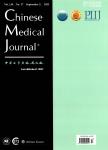Metabolic plasticity of T cell fate decision
Metabolic plasticity of T cell fate decision作者机构:Institute of Basic Medical Sciences Chinese Academy of Medical Sciences (CAMS) & Beijing 100005 National Key Laboratory of Immunity and Inflammation Suzhou Institute of Systems Medicine Chinese Academy of Medical Sciences & Peking Union Medical College Suzhou Jiangsu 215123 China Department of Immunology & National Key Laboratory of Medical Molecular Biology
出 版 物:《中华医学杂志(英文版)》 (Chinese Medical Journal)
年 卷 期:2024年第137卷第7期
页 面:762-775页
核心收录:
学科分类:1002[医学-临床医学] 100214[医学-肿瘤学] 10[医学]
基 金:National Natural Science Foundation of China(Nos. 81788101, 82271775, and 81972875) Natural Science Foundation Outstanding Youth Fund of Jiangsu Province(Nos. BK20220049 and BK20211505) Chinese Academy of Medical Sciences Innovation Fund for Medical Sciences(Nos. 2021-I2M-1-021, 2021-I2M-1-061, and 2022-I2M-1-047) Haihe Laboratory of Cell Ecosystem Innovation Fund(No. 22HHXBSS00009)
主 题:T cell immunotherapy T cell differentiation T cell exhaustion Metabolic reprogramming Tumor microenvironment
摘 要:The efficacy of adaptive immune responses in cancer treatment relies heavily on the state of the T cells. Upon antigen exposure, T cells undergo metabolic reprogramming, leading to the development of functional effectors or memory populations. However, within the tumor microenvironment (TME), metabolic stress impairs CD8+ T cell anti-tumor immunity, resulting in exhausted differentiation. Recent studies suggested that targeting T cell metabolism could offer promising therapeutic opportunities to enhance T cell immunotherapy. In this review, we provide a comprehensive summary of the intrinsic and extrinsic factors necessary for metabolic reprogramming during the development of effector and memory T cells in response to acute and chronic inflammatory conditions. Furthermore, we delved into the different metabolic switches that occur during T cell exhaustion, exploring how prolonged metabolic stress within the TME triggers alterations in cellular metabolism and the epigenetic landscape that contribute to T cell exhaustion, ultimately leading to a persistently exhausted state. Understanding the intricate relationship between T cell metabolism and cancer immunotherapy can lead to the development of novel approaches to improve the efficacy of T cell-based treatments against cancer.



